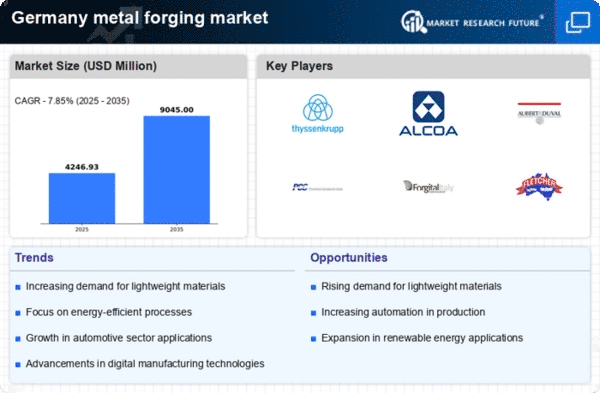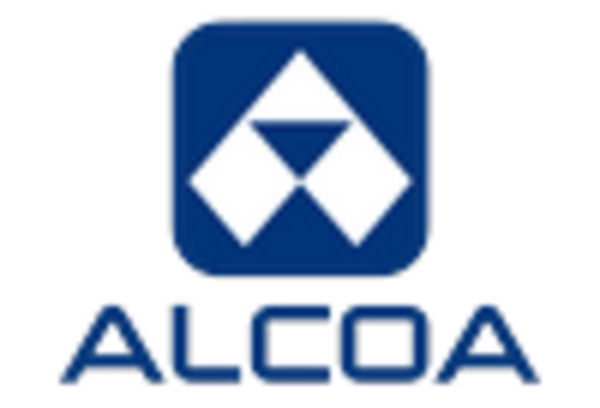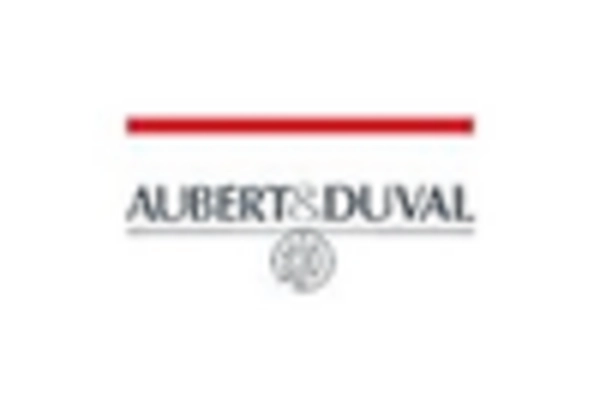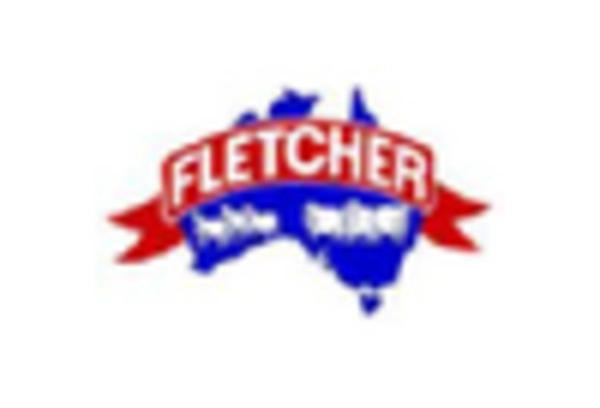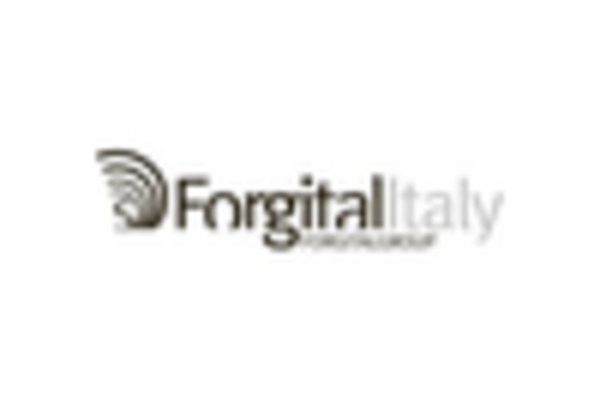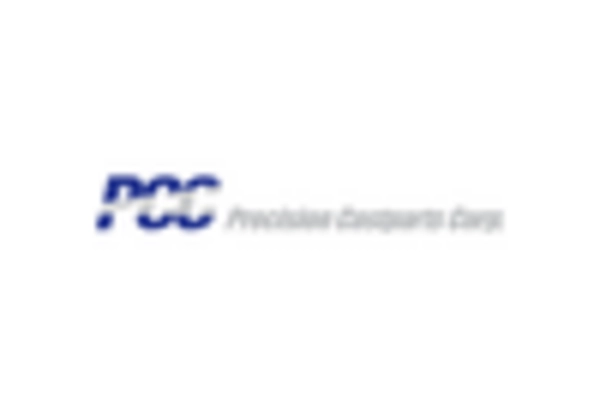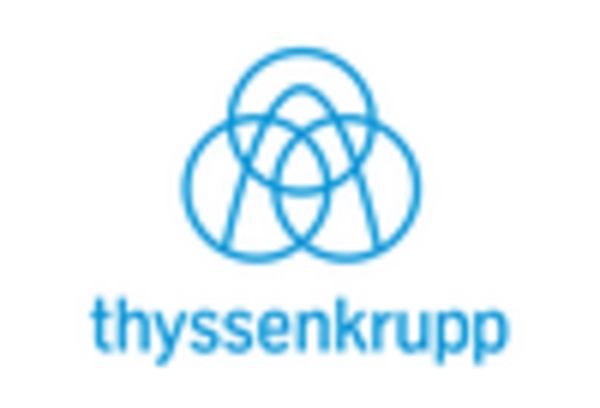The metal forging market in Germany is characterized by a competitive landscape that is increasingly shaped by innovation, sustainability, and strategic partnerships. Key players such as Thyssenkrupp AG (DE), Alcoa Corporation (US), and Bharat Forge Limited (IN) are actively pursuing strategies that enhance their operational capabilities and market presence. Thyssenkrupp AG (DE) focuses on digital transformation and has invested in advanced manufacturing technologies to improve efficiency and reduce costs. Alcoa Corporation (US) emphasizes sustainability, aiming to reduce its carbon footprint through innovative processes. Bharat Forge Limited (IN) is expanding its global footprint by forming strategic alliances, particularly in the automotive sector, which is crucial for its growth trajectory. Collectively, these strategies indicate a shift towards a more integrated and technologically advanced competitive environment.In terms of business tactics, companies are increasingly localizing manufacturing to enhance supply chain resilience and reduce lead times. The market structure appears moderately fragmented, with several players vying for market share while also collaborating on various initiatives. This competitive structure allows for a dynamic interplay between established firms and emerging players, fostering innovation and responsiveness to market demands.
In October Thyssenkrupp AG (DE) announced a partnership with a leading technology firm to develop AI-driven solutions for predictive maintenance in forging operations. This strategic move is likely to enhance operational efficiency and reduce downtime, positioning Thyssenkrupp as a leader in smart manufacturing within the sector. The integration of AI technologies could potentially revolutionize traditional forging processes, making them more adaptable and efficient.
In September Alcoa Corporation (US) unveiled its new sustainability initiative aimed at achieving a 50% reduction in greenhouse gas emissions by 2030. This initiative underscores Alcoa's commitment to environmental stewardship and aligns with global trends towards sustainable manufacturing practices. The strategic importance of this move lies in its potential to attract environmentally conscious clients and investors, thereby enhancing Alcoa's market position.
In August Bharat Forge Limited (IN) expanded its operations in Europe by acquiring a local forging company, which is expected to bolster its production capabilities and market reach. This acquisition reflects Bharat Forge's strategy to strengthen its presence in key markets and diversify its product offerings. The strategic importance of this expansion is significant, as it allows Bharat Forge to leverage local expertise and enhance its competitive edge in the European market.
As of November current competitive trends in the metal forging market are heavily influenced by digitalization, sustainability, and the integration of advanced technologies such as AI. Strategic alliances are becoming increasingly vital, as companies seek to pool resources and expertise to navigate the complexities of the market. Looking ahead, competitive differentiation is likely to evolve from traditional price-based competition to a focus on innovation, technological advancement, and supply chain reliability. This shift suggests that companies that prioritize these aspects will be better positioned to thrive in an increasingly competitive landscape.


